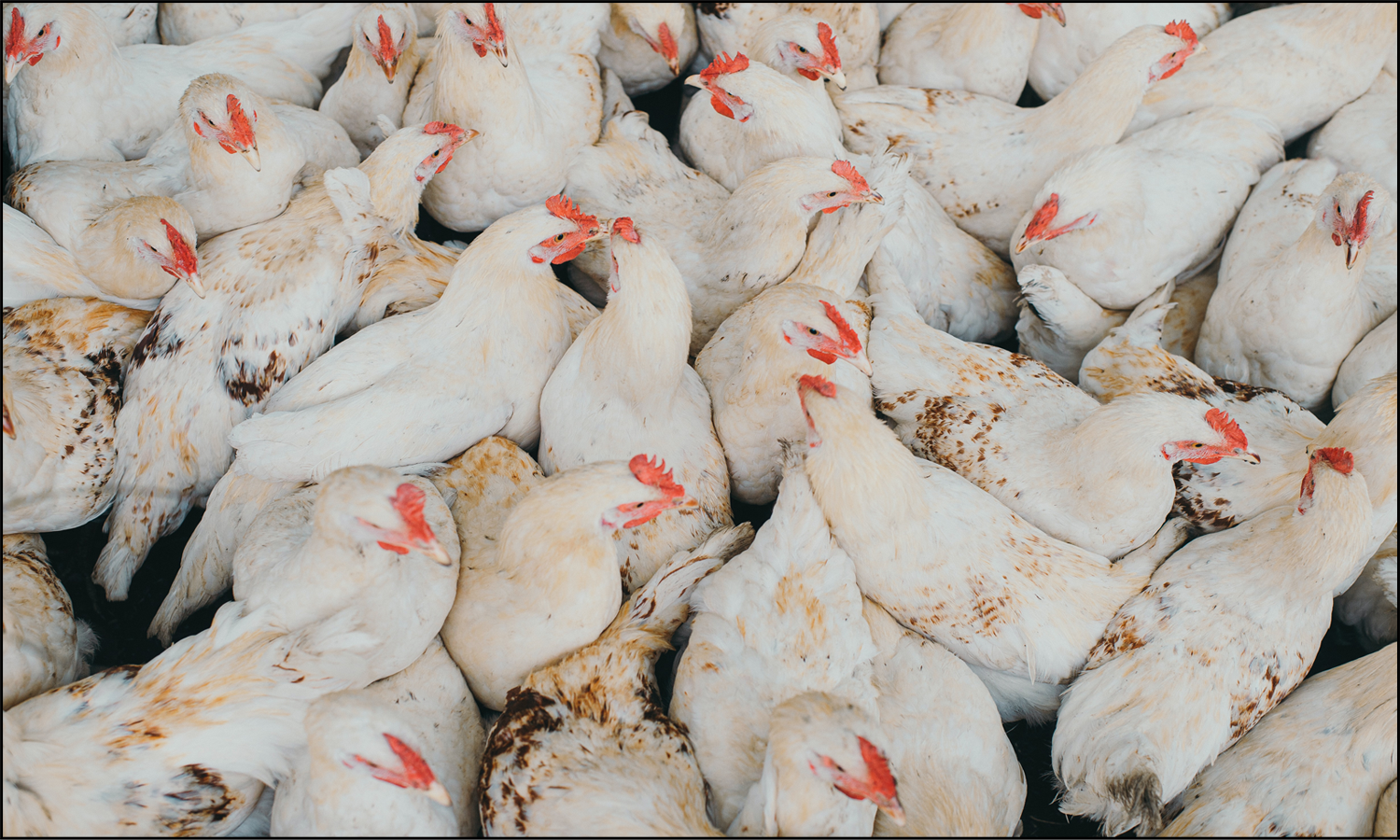Officials have stressed that poultry and eggs are still safe for human consumption. To tackle the outbreak, BAHA has been controlling the movement of poultry and poultry products from affected farms.
by Khaila Gentle
BELIZE CITY, Thurs. Sept. 15, 2022
For the first time in almost seven years, an outbreak of Avian Influenza has been identified in the country—this time in the poultry population of a farm in the Blue Creek community. According to Dr. Miguel Depaz, Director of the Animal Health Department at the Belize Agricultural Health Authority (BAHA), that farm has been placed under quarantine, and further testing is being done at other farms in northwest Belize, with results expected to return anytime this week. There are already preliminary indications that the virus had been detected on one other farm—in Shipyard. When asked by 7News’ Jules Vasquez about the sense of urgency in ensuring containment of the virus at one farm, Depaz said, “It’s actually two farms. We have detected another farm. We sample another farm that was having some problems in Shipyard and that farm came out positive also.”
Depaz said on Wednesday that samples had been taken from the Blue Creek farm after it was observed that a number of chickens were dying. The samples were then sent to the University of Georgia in the United States, after which BAHA enacted its emergency response plan.
“As you know, Avian Influenza is the most serious poultry disease. And despite having said ‘poultry’, there is a potential for zoonosis, meaning that it also has the potential to be transmitted to humans,” he stated.
BAHA received confirmation that the samples had tested positive for Bird Flu on September 9. The strain of the disease identified was subtype H5.
Avian Influenza viruses can be categorized into two groups—highly pathogenic and low pathogenic. According to the US Centers for Disease Control and Prevention (CDC), most H5 viruses are low pathogenic viruses. Occasionally, however, some highly pathogenic H5 viruses—which have the potential to severely impact poultry industries—have been detected.
“All H5 and all H7 are of concern [to BAHA] and more so to the poultry industry because it is known that it is those subtypes that really affect poultry,” said DePaz.
At the moment, the pathogenicity of the strain identified in Blue Creek has not yet been confirmed by BAHA. Further pending studies will reveal the virus’s exact genetic makeup. Depaz did note, however, that so far 1,000 birds have died. “From 25,500 birds they are down to about 24,000, so [they] have lost over one thousand birds. The pathogenicity we don’t know what it is, despite the mortality only being 4% maybe. That is already alarming, regardless of what anybody says. You don’t want to lose a thousand birds.”
The source of the outbreak is believed to be a batch of imported hatching eggs, from which farms in both Blue Creek and Shipyard received stock. This, however, will also be confirmed with further testing. “Now we can suspect that the origin might be the US, but when we do the genetic sequence of the virus we will know,” Depaz said.
BAHA has already begun to implement its mitigation strategies. A Cabinet brief released on Thursday noted that the government had approved the measures recommended by the organization for controlling and eradicating the disease. Those measures include the depopulation of birds from affected farms, checkpoints to control the movement of poultry and poultry products from affected farms, and increased surveillance in communities where there is a presence of the disease.
Depopulation at the Blue Creek farm—which houses just under 25,000 birds—is expected to take place this week, if it is found that the outbreak is severe, and, according to DePaz, it will be done humanely.
In Thursday’s brief, Cabinet also noted that the Minister of Agriculture, Hon. Jose Abelardo Mai, had reassured them that there is no shortage of poultry products in Belize at this time. Hon. Mai, however, did state on Wednesday that there will be no movement of live birds and eggs until adequate testing of farms has been completed.
“We cannot slaughter animals for human consumption if they are not tested,” he said.
While depopulation will have an impact on the poultry industry, it may be the most effective measure for mitigating the spread of the disease. And, according to Armando Cowo, the President of the Belize Poultry Association, there would be no immediate impact on consumers.
Cowo and DePaz have stressed that poultry meat is still safe for consumption. Under BAHA’s emergency response plan, all birds entering the slaughterhouse must test negative and layer birds must test negative before their eggs can be commercialized. As a result, processed poultry is still being allowed to move out of the country. The movement of live birds out of farms, however, is being controlled.
Cowo, while commending BAHA for its immediate response to the suspected virus, has said that he believes the health authority may be acting too quickly in wanting to begin depopulation. He added that, following scientific protocol, BAHA should wait until it receives the final confirmation from its reference labs in the US. The Poultry Association, however, remains cognizant of the fact that Avian Influenza demands quick action.
BAHA is hoping to avoid a complete lockdown of the communities that produce the majority of the country’s poultry, as that would prove devastating.
“You need to allow activities but without compromising the situation—in other words, if I will allow birds to move out of Blue Creek, I need to test them. I need to ensure that they are negative. So, that is what we need to do. A total lockdown would kill the industry up north,” DePaz said.
In December 2015, an outbreak of Avian Influenza originating in Spanish Lookout village led to the culling of some 60,000 birds and approximately $6 million in losses for the poultry industry after a total of seven months.

